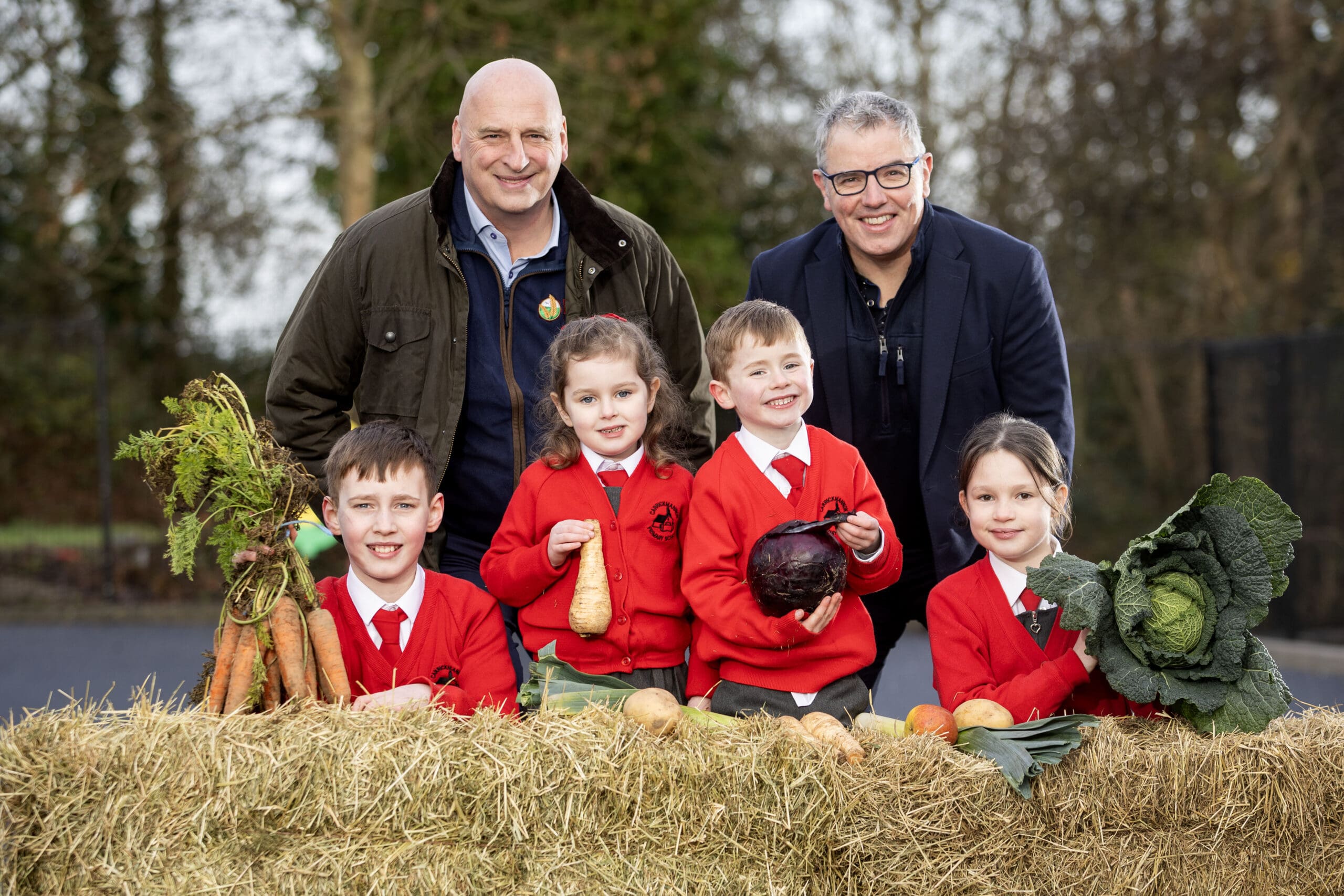
Secretary of State for DEFRA Steve Reed, was one of the guest speakers at the NFU conference. You can find a video update on his speech, provided by UFU deputy president John McLenaghan, on the UFU Facebook and Twitter page.
By policy, technical and communications manager James McCluggage
The UK’s farming sector has all the ingredients for success on the global stage – fertile soils, abundant water, a temperate climate and cutting-edge technology. Coupled with world-leading food standards, UK farmers are well-positioned to expand their reach and capitalise on the growing, global demand for high-quality food. This was the key message from the export session at the NFU Conference this week which I attended, chaired by NFU deputy president David Exwood.
Global market
Sandra Sullivan MBE, director of the Food and Drink Exporters Association, provided a detailed analysis of the global market. She highlighted that the EU remains the UK’s dominant trading partner, accounting for nearly 60% of food and drink exports in 2023. The US, China, Singapore, and the United Arab Emirates, followed as significant markets. When it comes to the UK’s top ten export products, whisky led the way, followed by salmon, cheese, chocolate, milk and cream, soft drinks, beef, breakfast cereals, lamb and mutton, and fish.
However, Sandra cautioned that much of the recent growth in exports has been driven by inflation rather than increased sales volumes. While Asia remains the only region showing genuine growth, emerging markets in Africa, Canada, Mexico and Latin America hold immense potential. The challenge for UK businesses, she said, lies in increasing awareness of their products and effectively promoting their quality, sustainability and high welfare standards.
“It’s about raising awareness, making sure we’ve got the right product, and shouting out about the values of the UK in terms of quality, tradition, high welfare and sustainability,” she stressed. “It’s absolutely vital that as an industry, as an organisation [NFU], and as a country, we are outward-looking, engaging with international markets and identifying both opportunities and threats.”
Export markets
Adding a practical business perspective, Richard Clothier, managing director of Wyke Farms, shared insights into how his family-run cheese business has thrived in export markets. With a turnover of £175m and employing 350 people, Wyke Farms produces 20,000 tonnes of cheddar and 5,000 tonnes of butter annually, supplying UK retailers and exporting to over 160 countries.
Richard highlighted the importance of having a long-term export strategy, building relationships and establishing brand recognition through trade shows and in-store tastings. He emphasised that the UK must embrace an export mindset, with quality assurance schemes like Red Tractor playing a crucial role in building trust with international buyers, particularly in Asia.
“We need to be patient. Export is a long-term strategy and a generational challenge – it can take ten years just to get into one region and establish volume,” he explained. “But I’m a massive optimist. I believe we’ve got the best products in the world, produced to the highest standards. If we all work together, the future is really bright for British exports.”
Q&A
During the Q&A session, the panel agreed that export growth drives professionalism, strengthens premium branding and helps businesses diversify their customer base while spreading risk. They noted that export markets often offer better profit margins compared to domestic sales.
Looking ahead, Richard identified India and Africa as key growth markets, provided government support is leveraged effectively. He also expressed optimism about the US market’s potential, though he acknowledged that securing a favourable trade deal in the current political climate remains a significant challenge.
Sandra echoed this view, adding that despite geopolitical uncertainties, UK businesses must pursue international markets where there is clear demand for high-quality products. She urged the government to adopt a more coordinated, long-term food trade strategy, rather than the current fragmented approach, to ensure sustained success.
Key message
The message from the session was clear – UK farmers and food producers have a wealth of opportunities in export markets, but success requires patience, strategic investment and strong promotional efforts. By working together and embracing an outward-looking approach, UK agriculture can secure its place on the global stage and thrive in an increasingly competitive market.




